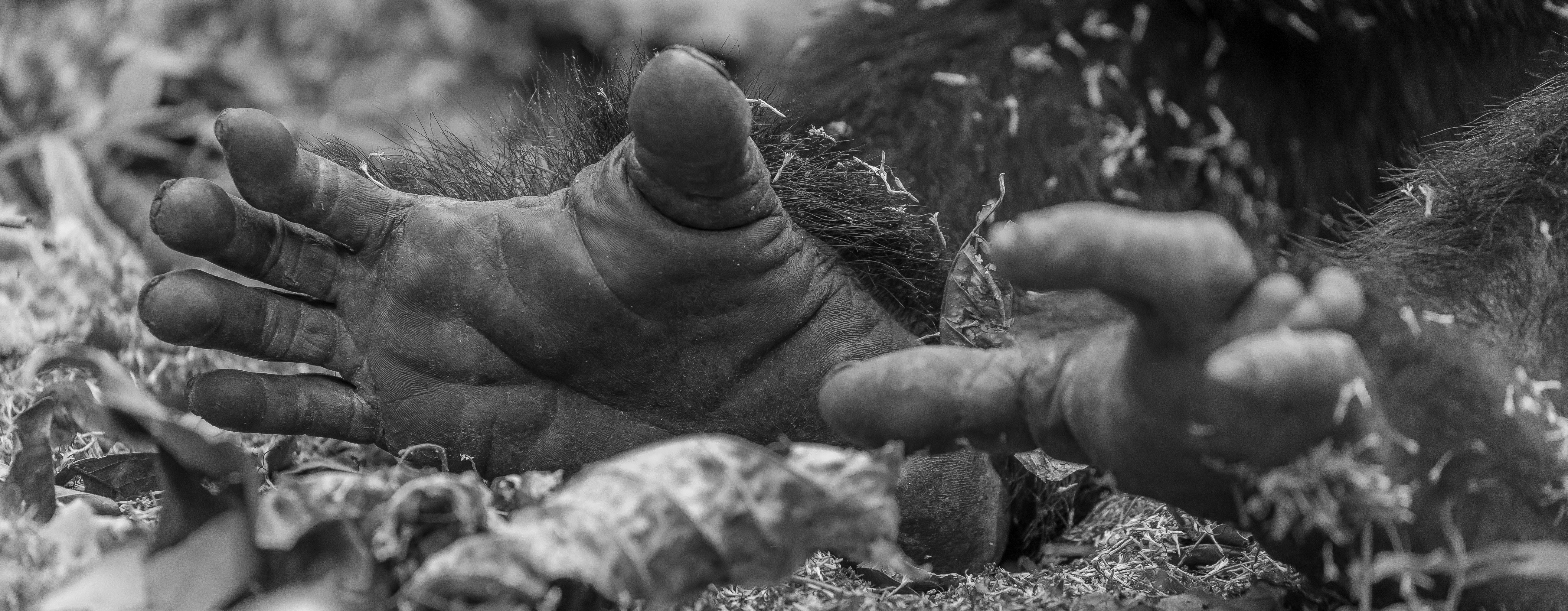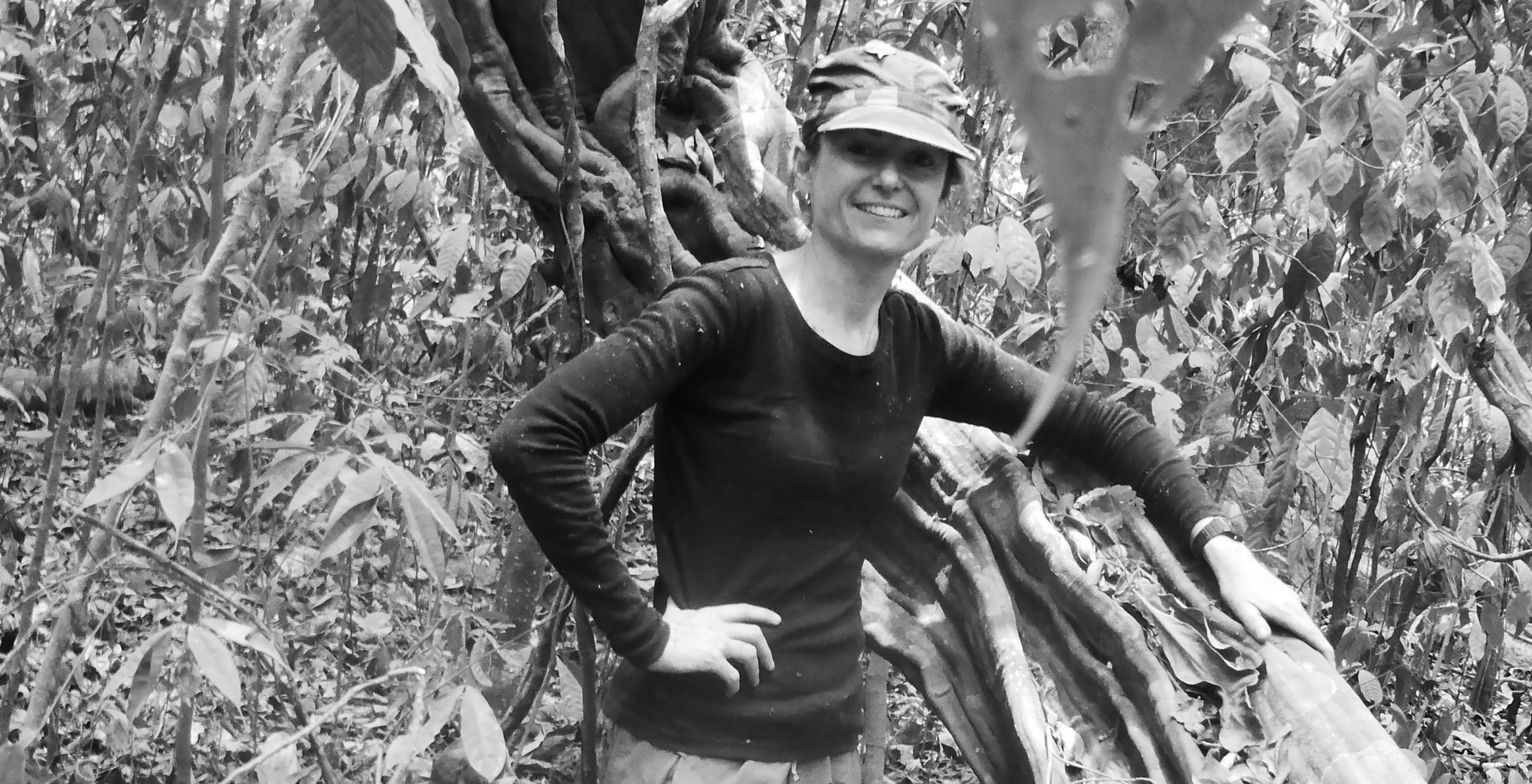Last week I had the opportunity to catch Liz Greengrass, Born Free’s associate director. Aside from her tales of near death experiences including stepping on a black mamba in Tanzania, being beaten up by the alpha male chimp, shot at in a high speed car chase when her rogue taxi driver refused to stop at a check-point in Nigeria and her various bouts with malaria, Liz’s story is fundamentally fascinating.
Last year I had the opportunity to meet with Daniel Turner, European associate director of Born Free and close colleague of Liz. Since writing a blog of similar ilk on Sillero’s wolf project, I decided to make it a habit to advocate for, not only the goings on of Born Free, but also the stories of some of the incredible characters behind the organisation.
Liz’s conservation story started in England, with a degree in zoology and later set out to the Republic of Congo where she worked in a wildlife sanctuary. ‘It was here’, she explained, ‘that I got call from Jane Goodall out of the blue, who offered me a job at Gombe National Park.’
Gombe, which is the smallest national park in Tanzania at 20 miles2, sits on the shores of Lake Tanganyika a couple of hundred miles north of Mahale and just below the Burundi border. It is the location where Jane Goodall first conducted her pioneering research on chimp behaviour.
‘I was here for seven years as a field assistant monitoring chimp mothers and their offspring for Jane. I was living in a hut on the beach. I went home once a year for a month, but that was it. The lake was my bath, there was no electricity, no wifi and it was only when I left in 2003 that there was some mobile coverage at the top of the escarpment, so had to wait for the post for any news from home.’
In Gombe National Park there are three main communities of chimpanzee. ‘The most southerly community’, Liz went on to explain, ‘we now know had SIV’.
SIV stands for simian immunodeficiency virus and has caused infection in non-human primates for more than 32,000 years. The virus is thought to have crossed the species barrier into humans through contact with the blood of chimps that were hunted for bush meat, evolving into human immunodeficiency virus (HIV).
‘In the late 90s people became more aware that SIV was in certain species of monkey and ape. People thought because SIV had evolved over a much longer time than HIV that it was less harmful.’
As it happened, the research that Liz was involved in had shown a major decline in the southern community of chimps, which was later found out to be due to infection with SIV.
‘I thought, it was all very well working on this central healthy community, but perhaps I should go and base myself in the south and find out what was going on there. So I went and started studying this community of chimps in the south.’
Liz then left to do her PhD. In 2014 she started working for Born Free and has since spent time establishing a project at the Banyang-Mbo Wildlife Sanctuary, which is a protected area in Cameroon that local people still have access to in order to extract resources. Initially, the hope was that the area would be used in a sustainable way. Unfortunately, this has not been the case. When it was first established in 1993 there were still huge bush meat hunting camps inside the forest that were never shut down. In 2006 and 2007 Liz was brought in to estimate the population sizes of elephant and chimpanzees in the forest.
‘I had never been to a forest where there was so much rampant bush meat hunting on a commercial basis before, but something about that forest really resonated with me. Elephants have gone from most of West Africa now and it was the first time I had worked in a forest that had any elephant.’
At the time despite there being widespread bush meat hunting in the forest, Liz’s survey found there to be a stable population of chimpanzees, mainly due to the societal taboo put on chimp meat.
About a year ago Liz was commissioned to do a rapid survey of the area and found a significant decline in forest elephant. Banyang-Mbo is made up of lots of fragmented forest blocks, which has caused great pressure between elephant and human communities that compete for space.
‘Because of the fragmentation of the reserves, in the dry season elephants often forage outside the sanctuary and become a danger for local people, who even call up poachers to kill encroaching wildlife.’
The poachers, Liz told me, take the tusks and leave the meat for the community making persuading local people to protect elephants all the more difficult.
‘Aside from this we found that chimpanzee numbers have plummeted. We think that the falling populations of other primates, due to hunting pressure, has led to hunters turning their sights to chimpanzees.’
Liz’s team are hoping to establish an elephant guardian programme which they’re piloting in the coming year. The idea is to begin to generate benefits to local communities from elephants. Getting communities on side is a huge challenge in any conservation work. Which just leaves me to wish Liz and Born Free, with all their future challenges, the best of luck in the year ahead.

Image by Kevin Matto
